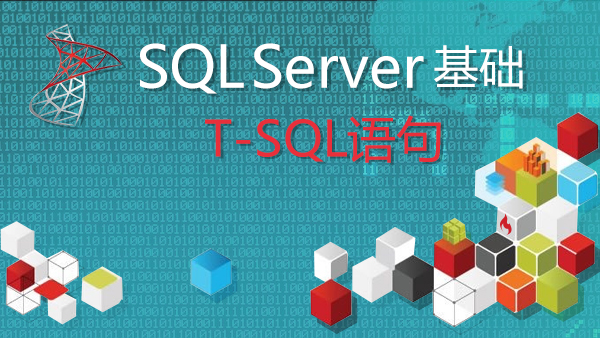SQLite是一个零配置、无服务端、基于文件的事务型数据库系统。由于它的轻量级,自包含和紧凑的设计,所以当你想要集成数据库到你的程序中时,SQLite是一个非常不错的选择。在这篇文章中,我会展示如何用Perl脚本来创建和访问SQLite数据库。我演示的Perl代码片段是完整的,所以你可以很简单地修改并集成到你的项目中。
访问SQLite的准备
我会使用SQLite DBI Perl驱动来连接到SQLite3。因此你需要在Linux中安装它(和SQLite3一起)。
Debian、 Ubuntu 或者 Linux Mint
$ sudo apt-get install sqlite3 libdbd-sqlite3-perl
CentOS、 Fedora 或者 RHEL
$ sudo yum install sqlite perl-DBD-SQLite
安装后,你可以检查SQLite驱动可以通过下面的脚本访问到。
#!/usr/bin/perl
my @drv = DBI->available_drivers();
print join("\n", @drv), "\n";
如果你运行脚本,你应该会看见下面的输出。
DBM
ExampleP
File
Gofer
Proxy
SQLite
Sponge
Perl SQLite 访问示例
下面就是Perl访问SQLite的示例。这个Perl脚本会演示下面这些SQLite数据库的常规管理。
创建和连接SQLite数据库
在SQLite数据库中创建新表
在表中插入行
在表中搜索和迭代行
在表中更新行
在表中删除行
use DBI;
use strict;
# 定义数据库名称和驱动
my $driver = "SQLite";
my $db_name = "xmodulo.db";
my $dbd = "DBI:$driver:dbname=$db_name";
# sqlite 没有用户名密码的概念
my $username = "";
my $password = "";
# 创建并连接到数据库
# 以下创建的文件名为 xmodulo.db
my $dbh = DBI->connect($dbd, $username, $password, { RaiseError => 1 })
or die $DBI::errstr;
print STDERR "Database opened successfully\n";
# 创建表
my $stmt = qq(CREATE TABLE IF NOT EXISTS NETWORK
(ID INTEGER PRIMARY KEY AUTOINCREMENT,
HOSTNAME TEXT NOT NULL,
IPADDRESS INT NOT NULL,
OS CHAR(50),
CPULOAD REAL););
my $ret = $dbh->do($stmt);
if($ret < 0) {
print STDERR $DBI::errstr;
} else {
print STDERR "Table created successfully\n";
}
# 插入三行到表中
$stmt = qq(INSERT INTO NETWORK (HOSTNAME,IPADDRESS,OS,CPULOAD)
VALUES ('xmodulo', 16843009, 'Ubuntu 14.10', 0.0));
$ret = $dbh->do($stmt) or die $DBI::errstr;
$stmt = qq(INSERT INTO NETWORK (HOSTNAME,IPADDRESS,OS,CPULOAD)
VALUES ('bert', 16843010, 'CentOS 7', 0.0));
$ret = $dbh->do($stmt) or die $DBI::errstr;
$stmt = qq(INSERT INTO NETWORK (HOSTNAME,IPADDRESS,OS,CPULOAD)
VALUES ('puppy', 16843011, 'Ubuntu 14.10', 0.0));
$ret = $dbh->do($stmt) or die $DBI::errstr;
# 在表中检索行
$stmt = qq(SELECT id, hostname, os, cpuload from NETWORK;);
my $obj = $dbh->prepare($stmt);
$ret = $obj->execute() or die $DBI::errstr;
if($ret < 0) {
print STDERR $DBI::errstr;
}
while(my @row = $obj->fetchrow_array()) {
print "ID: ". $row[0] . "\n";
print "HOSTNAME: ". $row[1] ."\n";
print "OS: ". $row[2] ."\n";
print "CPULOAD: ". $row[3] ."\n\n";
}
# 更新表中的某行
$stmt = qq(UPDATE NETWORK set CPULOAD = 50 where OS='Ubuntu 14.10';);
$ret = $dbh->do($stmt) or die $DBI::errstr;
if( $ret < 0 ) {
print STDERR $DBI::errstr;
} else {
print STDERR "A total of $ret rows updated\n";
}
# 从表中删除某行
$stmt = qq(DELETE from NETWORK where ID=2;);
$ret = $dbh->do($stmt) or die $DBI::errstr;
if($ret < 0) {
print STDERR $DBI::errstr;
} else {
print STDERR "A total of $ret rows deleted\n";
}
# 断开数据库连接
$dbh->disconnect();
print STDERR "Exit the database\n";
上面的Perl脚本运行成功后会创建一个叫“xmodulo.db”的数据库文件,并会有下面的输出。
Database opened successfully
Table created successfully
ID: 1
HOSTNAME: xmodulo
OS: Ubuntu 14.10
CPULOAD: 0
ID: 2
HOSTNAME: bert
OS: CentOS 7
CPULOAD: 0
ID: 3
HOSTNAME: puppy
OS: Ubuntu 14.10
CPULOAD: 0
A total of 2 rows updated
A total of 1 rows deleted
Exit the database
错误定位
如果你尝试没有安装SQLite DBI驱动的情况下使用Perl访问SQLite的话,你会遇到下面的错误。你必须按开始说的安装DBI驱动。
Can't locate DBI.pm in @INC (@INC contains: /usr/local/lib64/perl5 /usr/local/share/perl5 /usr/lib64/perl5/vendor_perl /usr/share/perl5/vendor_perl /usr/lib64/perl5 /usr/share/perl5 .) at ./script.pl line 3.
BEGIN failed--compilation aborted at ./script.pl line 3.
编译自:http://xmodulo.com/access-sqlite-database-perl.html作者: Dan Nanni
原创:LCTT https://linux.cn/article-5764-1.html译者: geekpi

 随时随地看视频
随时随地看视频


